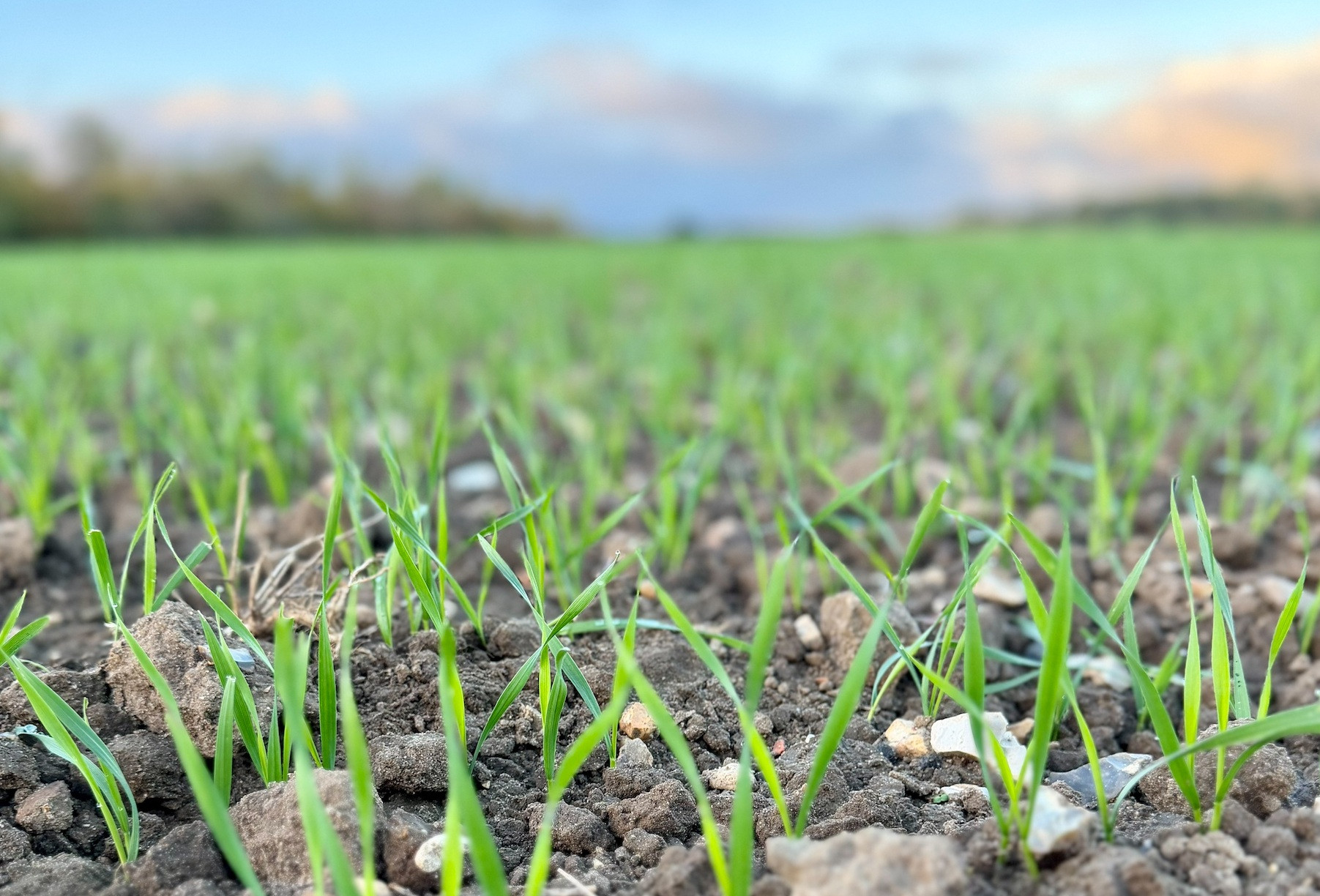Insight
Seasonal outlook: winter cereals
14 October 2025
AF Chief Agricultural Officer John Barrett summarises the autumn drilling trends he’s seen from AF Members, whilst Crop Protection Procurement Manager Alfie Jackson looks at some of the challenges facing weed control.
“We’ve seen an increase in winter wheat area, as farmers look to focus on growing the lowest risk crop,” says John Barrett.
“Well sown is half grown, drilling conditions have been excellent this year, with Members drilling into fantastic seed beds at relatively low cost.
“With cash tight Members are swapping buying in new seed for home saved seed to help reduce cost of production. Early harvest of potatoes and sugar beet in great conditions is also lending itself to turning land around for wheat.
“Winter barley area is down with a shift from hybrid to conventional varieties, again to help cut costs. Malting premiums are currently low as maltsters stocks are high meaning a reduction in area of winter malting barley being sown. Some Members are still growing feed barley for crop rotation and early entry into oilseed rape benefits.”
Alfie Jackson says “We've had some rain, followed by a flush of black grass and by now those who delayed drilling have seen a second opportunity for control. The lower cost generic herbicides are in short supply as stocks have been diverted to Europe, where the cost of these herbicides is higher ahead of imminent product withdrawal. We're expecting more product in the country later this month.
“There’s plenty of effective R&D chemistry available from brands such as Bayer, BASF, and Syngenta. But with price of November ’26 wheat at £170 for November ‘26, farmers are trying to match costs to future income.
“It's been a mixed year for oil seed rape establishment again with moisture at a premium. This has led in places to ‘cocks and hens’ making targeting of herbicides challenging.”
“It’s important for growers to react to the crop and conditions in front of them."
"If it stays warm and damp, farmers may need to monitor for disease. Likewise, with earlier drilling and warm temperatures barley yellow dwarf virus is a risk and aphids will need to be monitored.
“But despite a few challenges to overcome, overall it’s a positive autumn for most arable farmers so far, giving them fantastic conditions to get crops in the ground.”
To discuss your crop protection needs for autumn or spring, get in touch with your AF Crop Protection team.
Read about savings we're making for other Members, that your business could benefit from too, in our latest Member Stories.
Find out where you can meet our AF team at an event near you.